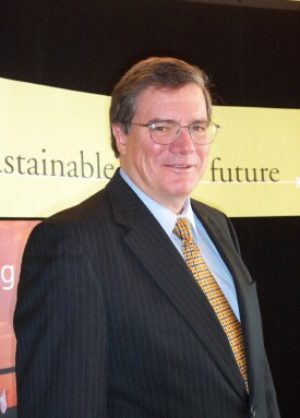Innovation Anthology #122: Environmental Scientist

It’s been many years since any nuclear power plants have been built in North America.
But proponents of using nuclear energy to provide power for oil sands production are pinning their hopes on a new generation of nuclear technology, Generation 4.
Dr. Bill Rogers is with the Idaho National Laboratory, an American agency which specializes in nuclear research. Dr. Rogers describes Generation 4.
DR. BILL ROGERS: These will modular systems. They won’t be water cooled, they’ll be gas cooled. They’ll operate at very high temperatures. They have a fuel that never comes in contact with the coolant. They’re inherently safe. They’re built underground. And if you have the worst possible accident scenario, which is you lose all of your coolant and the temperature starts to rise, these systems you just walk away from them and they heal themselves. And you can go back in and turn them on once you’ve fixed the leak or whatever the problem is.
Dr. Bill Rogers’ team at the Idaho National Laboratory will be helping scientists at the Alberta Research Council evaluate the possible use of 4th generation nuclear power in Alberta.
Thanks today to the Alberta Research Council.
FOR INNOVATION ANTHOLOGY, I’M CHERYL CROUCHER
Guest
Jessica Piercey,
Syncrude Canada Ltd, Fort McMurray, Alberta, Canada,
Sponsor
Alberta Research Council
Established as the first provincial research organization in Canada, the Alberta Research Council is 85 years old. The Alberta Research Council (ARC) develops and commercializes technologies to give customers a competitive advantage. A leader in innovation, ARC provides solutions globally to the energy, life sciences, agriculture, environment, forestry and manufacturing sectors.
ARC performs about five per cent of the roughly $1.5 billion in R&D done in Alberta each year, and generates revenues of approximately $84 million per year. ARC operates from five sites across the province in Edmonton, Calgary, Vegreville and Devon and employs more than 600 highly-skilled people.
In January 2010, under the new Alberta Innovation Framework, the Alberta Research Council was restructured and incorporated into the new provincial agency Alberta Innovates Technology Futures.

Program Date: 2008-04-03